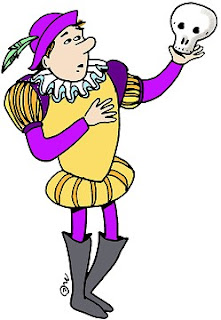Doughnuts
I like doughnuts. I think they are best with coffee.
Especially in the morning. But late morning is also good. When I have to drive
long distances, there is nothing I like to do better than to stop early in the
trip and purchase coffee and doughnuts ‘to go.’ It makes the trip a whole lot
shorter to munch on doughnuts while watching the miles slide by.
The other times I like doughnuts are just before bedtime. My
digestive system seems to need something to help me go to sleep at night;
nothing does quite so well in sending me off to dreamland than a glass of milk,
accompanied, of course, with a doughnut.
Actually, I think just about anytime is a good time for a
doughnut. Today, for example, our power went off early in the morning. We wandered
around the house for awhile, trying to grope our way to the bathroom and other
essential places in the dark. Then one of us, I can’t remember if it was me or
my favorite live-in companion, suggested making a trip to town to see if anyone
in business had power. So, we did. Nearly all the shops were closed because of
no power. To our surprise, our local purveyor of doughnuts was open, ready to
sell us each a doughnut, which we couldn’t resist. Just so you don’t think I am
fixated exclusively on doughnuts, I should tell you that we also ended up
purchasing two fritters that we promised each other not to eat until tomorrow.
So, what is my beef that prompts me to write about doughnuts?
My problem is spelling. As a wordsmith, I am obliged to warn that many people
and businesses are polluting our language by no longer calling them by their
rightful name, doughnuts, a perfectly appropriate name since they are made
mostly from dough and sugar. Instead, our hurry-up society has found a
shortcut; donuts. I think this name became popular when one of my favorite purveyors
“Dunkin Donuts” began making signs all across the country that listed their
products as ‘donuts.’ I believe the word doughnuts was too big for their signs.
The problem with donut is that it sounds too close to ‘don’t
(eat) nuts.’ This is an anathema to me since one of my favorites is a nutty
doughnut, although I like just about every kind of doughnut.
Sadly, doughnuts have a bad press. I think the medical profession
in America is responsible. They seem to think that a product loaded with fat
and sugar is bad for us. Especially for one of advanced age like me. I think it
has more to do with the upbringing that most doctors were subjected to. My
theory is that all doctors had demanding mothers who told them at least a thousand
times, ‘don’t eat that, its not good for you.’ Not eating doughnuts must have
been high on their list of things to avoid since they are difficult to make at
home.
You probably don’t know what the Hippocratic Oath is: You
know, that oath that all doctors have to swear that they will always tell their
patients about. I don’t know what it is either, but I believe it has something
to do with fat and sugar and doughnuts and arteries, and it says something like
they heard from their mothers “If you eat this, you will begin to look like a hippopotamus.”
At least, that’s my theory and I’m sticking with it.







